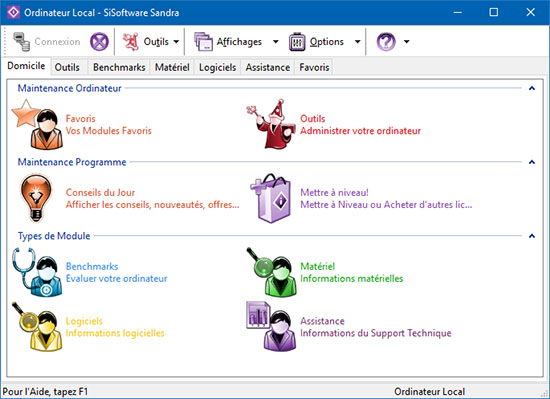Une nouvelle version de Sandra 2017 (24.18) est disponible en téléchargement

L’éditeur SiSoftware vient de mettre en ligne une nouvelle version de son programme Sandra 2017. Celle-ci apporte plusieurs changements, notamment : un meilleur support des processeurs AMD Ryzen, la correction d’un bug sous Windows 7 et Windows Server 2008 R2, une meilleure détection des processeurs Atom (Baswell), ainsi que des correctifs et des optimisations pour les tests GPGPU. Le changelog complet peut être consulté en bas de cette news.
-> Télécharger Sandra 2017 (version 2017.04.24.18)
Liste complète des changements apportés par Sandra 2017.04.24.18 :
* Windows 7/Server 2008 R2: failure to launch due to missing TPM support.
– If the BitLocker/TPM2 update was not installed and TPM support were missing Sandra would fail to launch.
* AMD Ryzen: updated support and fixes.
– Better detection and information through further testing.
* Intel Atom Braswell and later: multiplier detection issues.
Benchmarks would fail to validate due to incorrect values.
– CPU Scientific: crash using the SSE2/3 FFT implementation on Atom CPUs.
* GPGPU: optimisations and fixes.
– OpenCL: optimisations for image processing, especially relating to FP16/half processing:
– DX ComputeShader: fixes for image processing enabling both FP32 and FP16 performance.
* GPGPU: test data randomised.
– Cryptography: CUDA, OpenCL, DX CS: replaced with random data which reduces cache locality and thus performance especially on APUs. AES performance has thus reduced by up to 50-70%.
Using randomised/high-entropy data is meant to improve the « fairness » of the benchmarks preventing « best-case » scenarios where results may be better than expected. While hardware may thus perform better given low-entropy data – that is preferable to the previous results.
* Ranker: old results (pre Sandra 2014) removed.
– The reference/aggregated results have been updated with newer 2017 results given higher weight.

Désolé, les commentaires sont fermés.